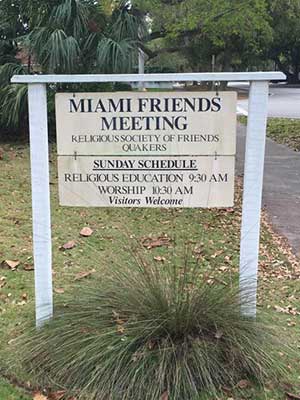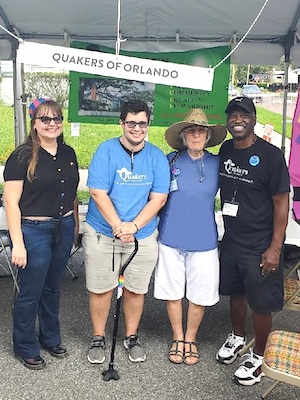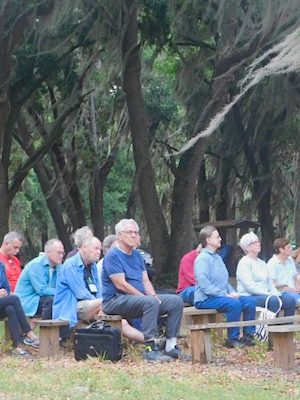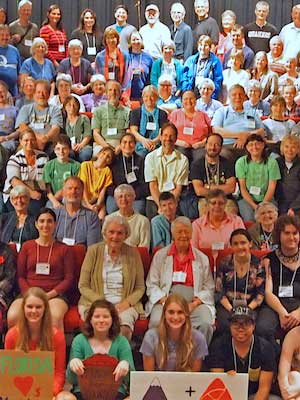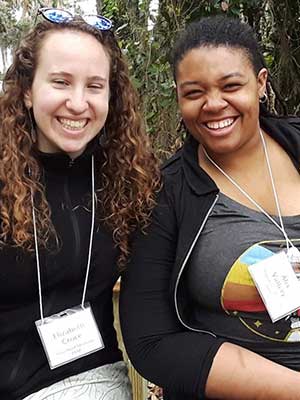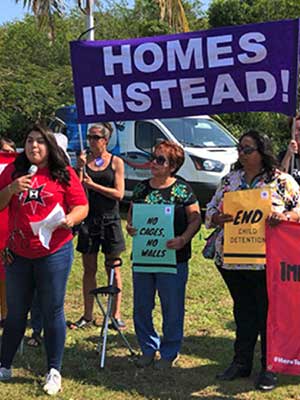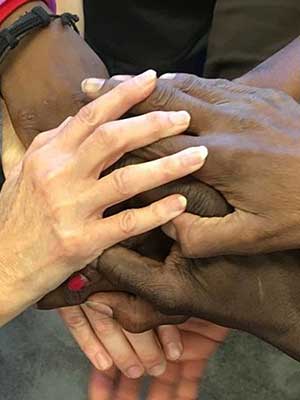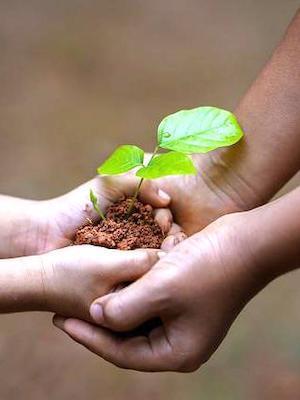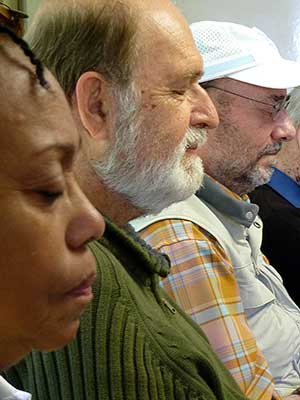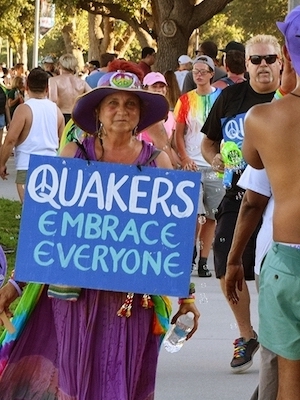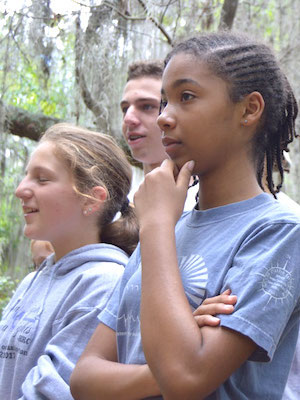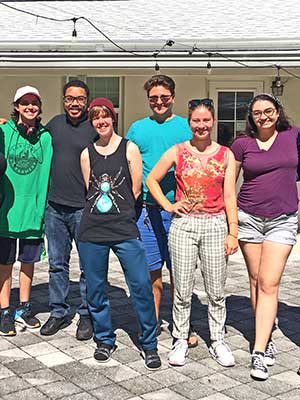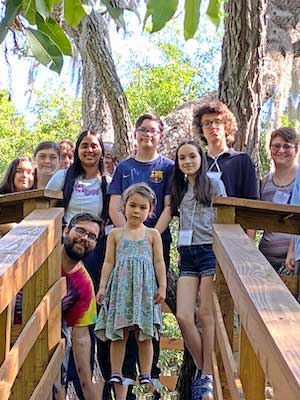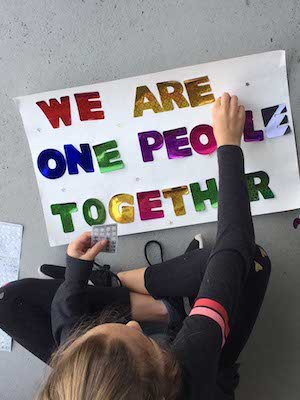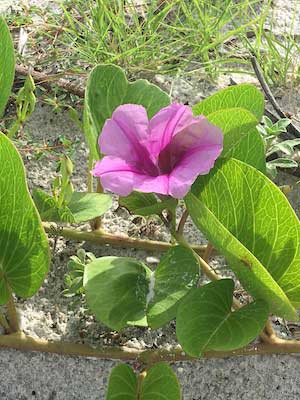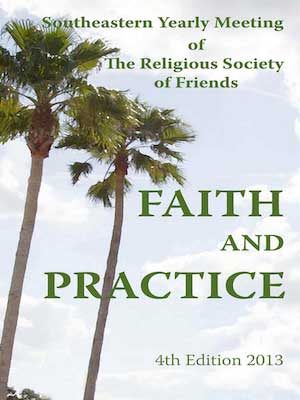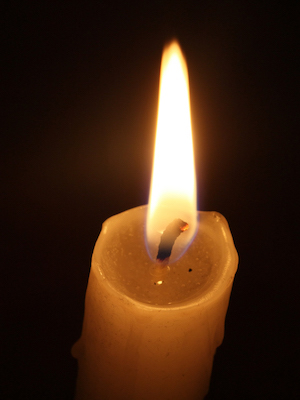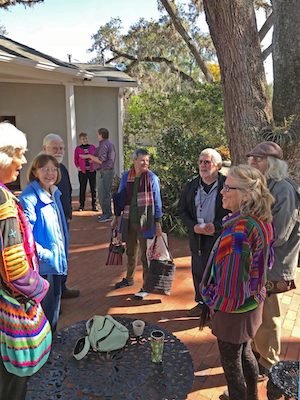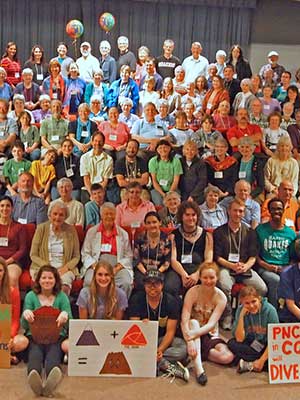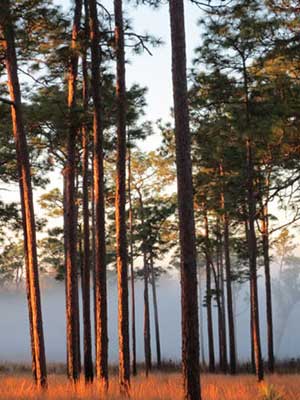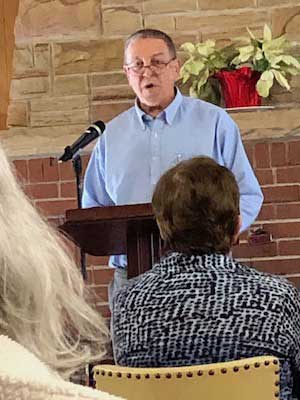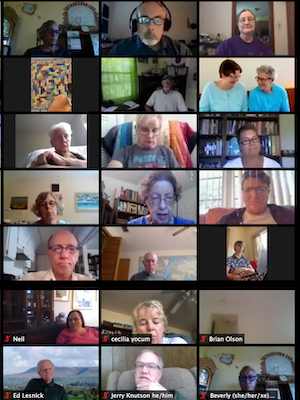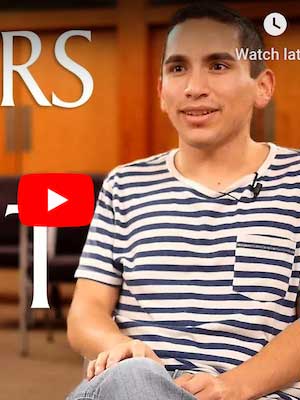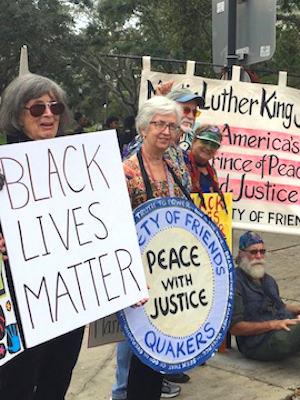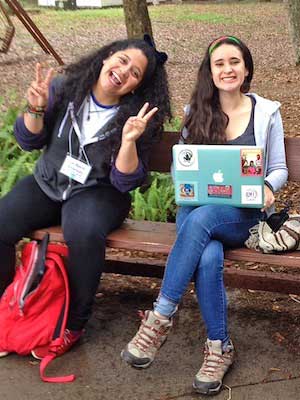
Our Faith
About Our Faith
Videos on Faith
Our Testimonies
Testimonies Videos
About Our Faith
At the heart of the Quaker faith is the experience of an inner source of spiritual growth, renewal and guidance that is present in all people, regardless of religion or culture. Friends use many different terms or phrases for this source, such as: The Inner Light, the Light Within, Spirit, the Divine, the Christ Within, the Seed, the Inward Teacher, or God.
The Quaker discovery and message has always been that God still lives and moves and guides, in vivid immediacy, within the hearts of all people.
~Thomas Kelly, The Eternal Promise
Our faith is a way of life in the Spirit, tested and guided by those who have come before us. We have no need for creeds or statements of shared belief. We have no need for clergy or hierarchy. All are ministers—offering each other spiritual support, sharing in the silence and vocal ministry in worship, and participating in the work of the meeting and the yearly meeting.
Our understanding of our faith is always open and evolving, always contemporary. Among liberal Friends today you can find a wide spectrum of faith narratives: theist or non-theist, Christian or non-Christian, agnostic, or simply Quaker. Though each of us may use different language or names for the sacred — the inner Light, Spirit, the Divine, God — there is much that unites us and defines us as Friends:
- The shared experience of a living, dynamic spiritual presence at work in us and in the world — what Quakers call the inner Light — that transforms us into more compassionate and authentic human beings, leads us into new ways of living, and action, and brings us into unity as a community. Healthy spiritual experience bears good fruit in our lives, and brings us into deeper connection with each other, and the world.
- The shared experience of worshipping together that draws us into communion, loving friendship, and community.
- Distinctively Quaker practices that support spiritual growth, spirit-led ministry and group decision-making, and non-hierarchical, inclusive community.
- Friends today unite on Simplicity, Peace, Integrity, Community, Equality, and Sustainability as central testimonies — ways of living and action that flow naturally from listening to spirit.
Videos on Faith
Quakers and the Inner Light
What Do Quakers Believe?
What Do Quakers Believe About God?
9 Core Quaker Beliefs
Our Testimonies
Testimonies are outward expressions of inward spiritual transformations; ways of living, concerns, and actions that arise out of Friends’ spiritual experience and leadings. They are not ethics or ideals, but rather a witness to the new social order of peace, equality, and care for the earth that Spirit calls us to create.
True godliness doesn’t turn men out of the world, but enables them to live better in it and excites their endeavours to mend it. ~William Penn (1644-1718)
Quakers today unite around the central testimonies of Simplicity, Peace, Integrity, Community, Equality, and Sustainability.
Learn more by going to the SEYM Faith & Practice, Chapter 3, Concerns, Leadings, and Testimonies
Simplicity
Simplicity is being mindful of how we spend our time, energy and resources, so that we may live spirit-led, loving, and meaningful lives. It is a life uncluttered with things that distract us from hearing the ‘small, still voice within.’
Life is meant to be lived from a Center, a divine Center—a life of unhurried peace and power. It is simple. It is serene. It takes no time but occupies all our time. ~Thomas Kelley, 1941
Practicing simplicity is about not centering your life in material things. Friends are mindful of ways that luxuries and overconsumption are rooted in the exploitation of people and the destruction of the environment.
Peace
Quakers are known for being pacifists: taking stands against wars, counseling conscientious objectors, and working for reconciliation and prevention of deadly conflict.
Quakers are the only religion so far to receive the Nobel Peace Prize. It was awarded to Friends worldwide in 1947, recognizing three centuries of Quaker efforts to heal rifts and oppose war, and especially recognizing Quaker relief work in Europe following the two world wars. Representative of American Friends Service Committee and British Friends Service Council accepted the prize on behalf of all Friends. ~Friends General Conference
Today Friends are engaged in peacemaking many ways. The American Friends Service Committee, Friends Committee on National Legislation, Quaker United Nations Office, Friends Peace Teams, and Quaker House are just a few of the Quaker organizations working for peace. Many Friends are involved with the Alternatives to Violence Project (AVP), which was developed by Quakers.
Practicing peace is about creating a culture of peace: living in cooperation, inclusion, and equity — not competition—with others, and learning ways to communicate and resolve our differences without physical or emotional violence, coercion, or manipulation. Peace is not about avoiding conflicts, but rather practicing ways to resolve them without violence, such as using non-violent direct actions to effect social change.
Integrity
The testimony of Integrity is central to the Quaker way. It is when one’s outward life & actions are true to one’s words, feelings, and the inner guide.
Being honest with ourselves and others is the most visible part of practicing integrity. Spirit calls us to be authentic — to be who we truly are, and not to try to be something we’re not. It involves practicing true humility — accepting ourselves, developing our gifts and acknowledging our shortcomings. On a deeper level, it is about becoming psychologically whole human beings.
Community
God guides us to a place of empathy, care, and joy in each other’s company. Fellowship in the Spirit has a distinctive liveliness, openness, mutuality, and ease. ~SEYM Faith & Practice
The experience of the Light within calls us to live in harmony and connection with each other; not only with those in our Meeting or families, but with all people. The Quaker meeting is meant to be a ‘blessed community’— to be an example of a new social order of peace, justice, and compassion — and to take this message of community out into the world.
We come to understand that building compassionate and healthy relationships is what God asks us to do. Our spiritual growth depends on it. ~SEYM Faith & Practice, Ch. 4
Equality
The testimony of Equality is grounded not only recognition that there is that of God in everyone, but also in the experience of growing in our love and compassion for all. Every person is due equal respect, regardless of distinctions in class, race, gender, sexual orientation, social status, age or physical attributes.
Friends were among the first to recognize women’s equality and campaign for women’s rights. Many Friends became active in the anti-slavery movement and Underground Railroad, even at a time when many Quakers owned slaves. Today we are concerned with addressing racism, while becoming a truly anti-racist community ourselves. We are also concerned with political and economic inequities, and civil rights for all regardless of gender or sexual identity or orientation.
Sustainability
Friends feel a strong spiritual connection with Nature, and see all creation as sacred. We are deeply concerned about climate change and finding ways to reduce mankind’s destruction of the environment. The problem of climate change and learning to live sustainably is at its root a spiritual issue: can humankind come to value all life over wealth and economic growth?
Quakers are also concerned with Climate Justice — understanding how the most vulnerable people are more directly affected by the impacts of climate change, and how economic inequity and climate change are interrelated.
Only when we see that we are part of the totality of the planet, not a superior part with special privileges, can we work effectively to bring about an earth restored to wholeness. ~Elizabeth Watson, Your God is Too Small, 1996
Testimonies Videos
Testimonies: What Are the Quaker Spices?
